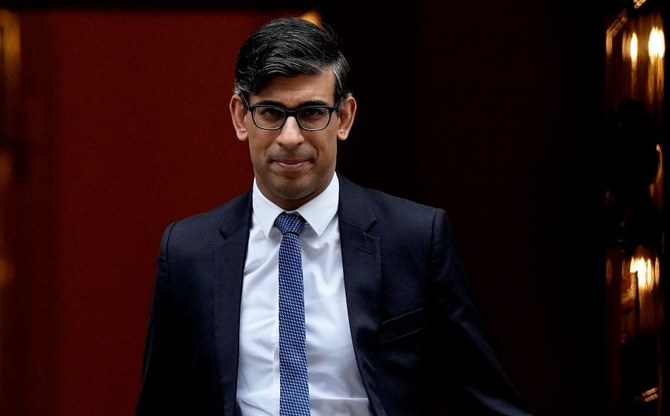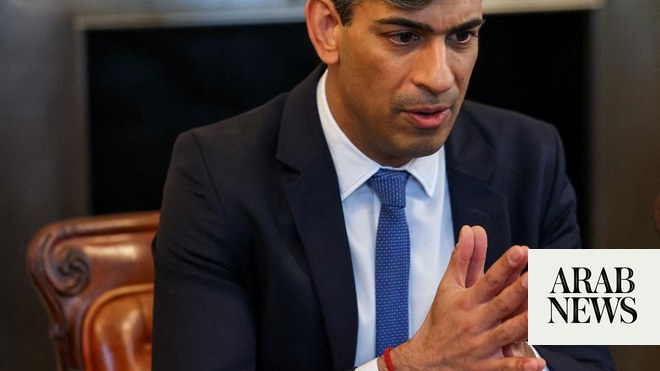
The new UN human rights chief has urged the British government to reconsider its plans to deport asylum seekers to Rwanda, warning that in the past similar “offshoring” schemes had led to “deeply inhuman” treatment of refugees.
In his first public comments on the controversy since taking office two months ago, Volker Türk rejected prime minister Rishi Sunak’s description of the £140m deal as “common sense”, saying that as well as being legally and ethically problematic it was also “very costly” and unlikely to work.
“You cannot offshore your responsibilities to another state in the way that is envisaged [by the UK government],” Türk told the Guardian. “It does raise very serious concerns, both from an international human rights and international refugee law perspective.”
Asked whether the government should go back to the drawing board, he said: “Yes, absolutely.”
The high court ruled on Monday that the Conservatives’ plan to send people seeking protection in the UK to the central African country was lawful, dismissing an application from asylum seekers, charities and a border officials’ union to stop it.
The victory was partial, as judges also said the government had failed to “properly consider the circumstances” of eight people it had tried to deport under the scheme in June, in one instance confusing facts relating to one Syrian Kurd with another Syrian in what the court deemed “not an immaterial error”.
The home secretary, however, swiftly announced her intention to push ahead the partnership “at scale and as soon as possible”. Suella Braverman claimed she was backed by the “overwhelming majority of the British people” in her desire to see an end to the people-smuggling gangs facilitating asylum seekers’ Channel crossings.
More than 40,000 people have crossed the Channel in small boats in 2022, the highest number since figures began to be collected in 2018. The journey is perilous: last week four people died after their boat got into difficulties off the Kent coast.
The Rwandan government has said that it currently has capacity to receive about 200 people – less than 0.5% of the total who have crossed this year and that rights groups say is nowhere near large enough to be a deterrent.
Türk, who succeeded Michelle Bachelet as the UN’s high commissioner for human rights in October, said there were “ways and means” for how governments could tackle smuggling gangs and ensure that those in need of protection receive it.
But the Rwanda programme would likely do neither, he added.
“Of course, it looks very dramatic to send people to Rwanda – but is it going to [do] the trick?” he said. “Which means making sure that those who are in need of international refugee protection are accepted as such, and those who are not are discouraged from doing it? I doubt that very much, and actually history proves it, if you just look at some of the things [we] saw in the Australian context.”
Türk, an Austrian lawyer and former assistant high commissioner at the UN refugee agency, said he had seen how Australia’s offshore processing centres on Nauru and Manus Island, Papua New Guinea, had been marked by human rights abuses. The latter was closed after the country’s supreme court ruled it illegal.
“The way that asylum seekers were treated in Nauru and Manus was deeply, deeply inhuman,” said Türk. The UK government rejects any comparison between the two schemes as “fundamentally wrong”, insisting that the deportees will have their asylum claims processed by Rwanda in accordance with international human rights law and will not be detained while that process is ongoing.
Reacting to the high court ruling, the prime minister said he wanted to deliver “a system whereby if you come to the UK illegally, you will not have the right to stay and we will be able to return you to your own country if it’s safe or a safe alternative like Rwanda”.
He added: “That’s the commonsense position, I think, of the vast majority of the British public.”
Speaking from Geneva, Türk said: “Certainly, from my perspective, it’s not common sense.” He also called on the government to tone down its rhetoric and “emotional language”, having previously criticised Braverman’s “horrible” use of the word “invasion” to describe the cross-Channel crossings.
“It’s not that there aren’t issues about irregular arrivals. That’s clear and it’s an issue that one has to deal with … but we have to take out the emotions, including some of the emotional language. We need to deal with it as an issue that is guided by international standards, international rights and international refugee law,” he said.
Despite the high court ruling, there will be no flight carrying asylum seekers to Kigali imminently. There are expected to be further appeals. A European court of human rights injunction in the summer prevented any deportations “until three weeks after delivery of the final domestic decision in ongoing judicial review proceedings”.
A Home Office spokesperson said: “Our groundbreaking migration partnership with Rwanda will provide individuals relocated with support to build new lives there, while disrupting the business model of people-smuggling gangs.
“It was found to be lawful by the high court on Monday and the home secretary is committed to making it work to help prevent dangerous, illegal and unnecessary journeys.
“Comparing this policy and the Australian model is fundamentally wrong and inaccurate; under our approach people sent to Rwanda are not detained but relocated, and are free to leave if they wish.”











